This is an article that’s been eight months in the making.
December last year, we wrote about a local business by the name of Poptanical. It specialises in seed pops—little “popsicles” made by moulding seeds, peat moss, and clay into a circular disk shape, which is then stuck onto the end of a labelled wooden stick.
We relayed our interest in trying out the seed pops, and in March 2023, we received a DIY Edible Growing Kit from Poptanical.
Typically, the brand’s DIY Edible Growing Kits are priced between RM38 (for one seed pop kit) up to RM82 (three seed pop kits). Poptanical generously sent us a kit with five different seed pops—basil, rocket, kale, broccoli, and tomato.
The tomato seed pop isn’t actually something listed on Poptanical’s website, but it’s something they started offering earlier this year in February, according to an Instagram post. Other than the five seed pops mentioned, the brand has a spinach seed pop too.
Seed pops aside, our kit included five pots, five packets of soil, and a set of adorable gardening tools.
Sowing the seeds
On March 9, we started our gardening journey as complete amateurs. The instructions were pretty straightforward. Just write the date of planting on the stick to keep track of how long it’s been, unwrap the seed pop, then plant it into the soil, burying just two-thirds of the disk into the soil.
We wished there was a bit more information about the care instructions in terms of the level of lighting and water. But you can always reach out to Poptanical with questions.
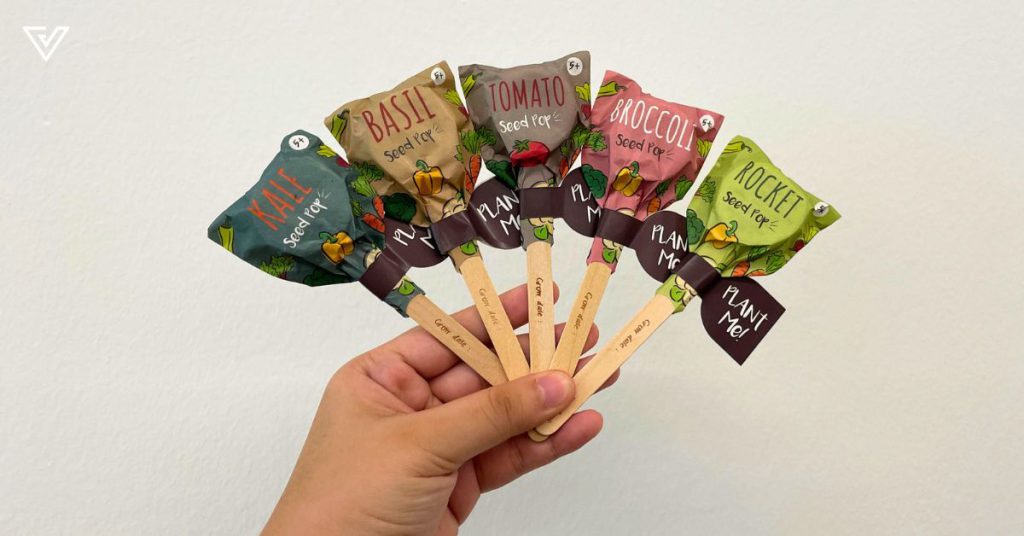
The brand instructs to water the seed pops every one to two days, but as newbies, we weren’t sure how much water we should be adding each time. Reaching out to ask, we were told that the key with the plants is to make sure the soil is wet and damp.
Karen, the co-founder of Poptanical, also told us that depending on where it is placed, in the garden with direct sunlight or in a condominium balcony, the water requirement would be different.
The planting process was a little messy to do in our office, where we would grow the plants, but we had a lot of fun. We spent a bit of time playing with the very soft and fluffy soil with the small shovel and rake provided—it felt exceedingly calming, akin to a zen garden.
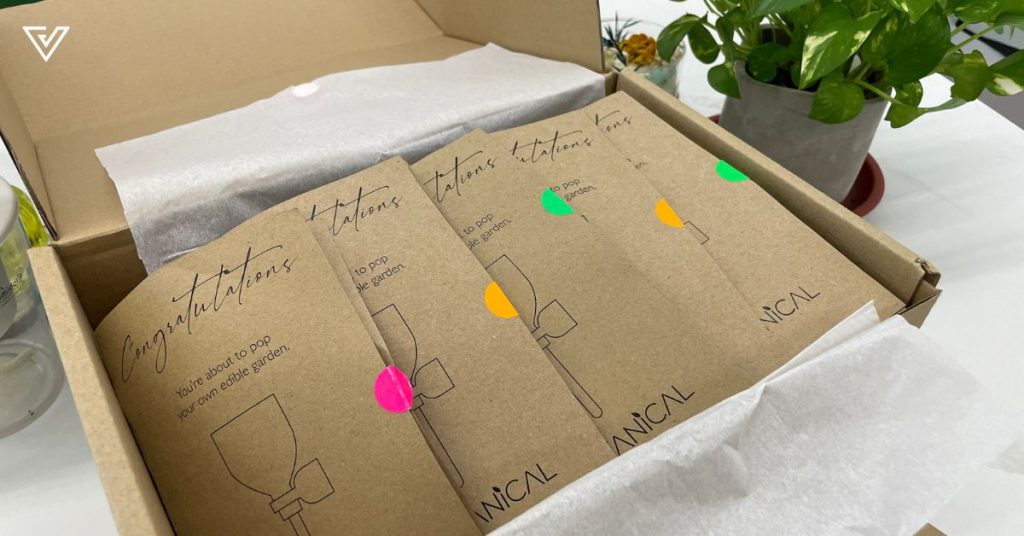
Eventually, we veered back to the task at hand and planted the seed pops and settled them on our windowsill, which gets a fair amount of sunlight.
With some water (and a small prayer on my part), we left the pots to be, hopeful to eat our own harvests soon.
One step forward, three steps back
Within just a few days, we already got rewarded by the sight of tiny little leaves growing out of the pots—something that was extremely exciting to us gardening newbies.
Almost every day in the beginning stages, we would visit our plants in the morning, gleefully sharing progression updates with each other.
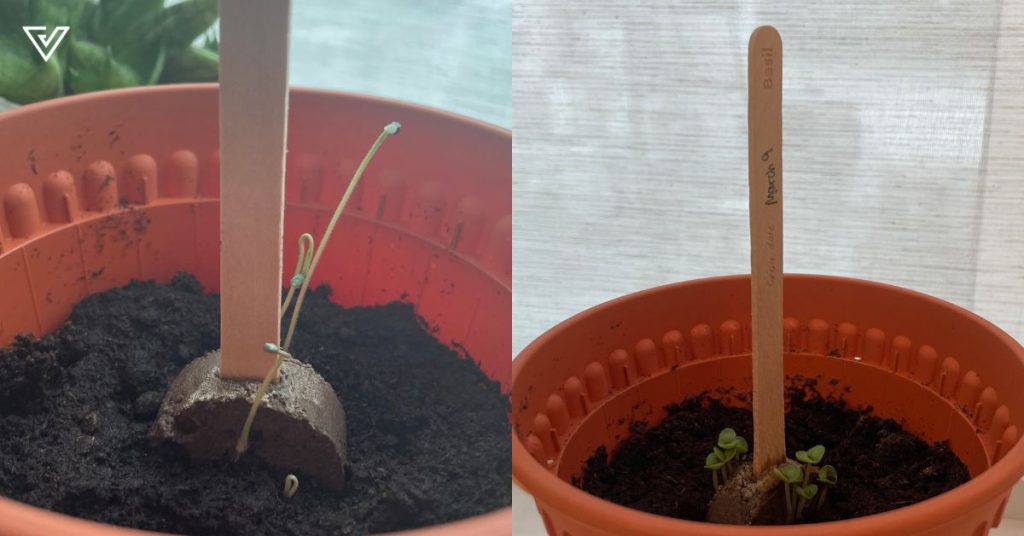
Karen said that the basil, kale, rocket, and tomato seed pops would take three months to harvest, and the broccoli head will require around eight months.
So, we hunkered down, ready to go the distance with our plants.
But then, just a month or so into our planting process, disaster struck. Perhaps we had forgotten to water the plants before leaving for a weekend. Perhaps they simply did not like the cold, indoor environment we had thrusted them into. Whatever the reason, our plants perished.
In any case, it was definitely our own user error.
However, one plant pulled through—the tomato plant.
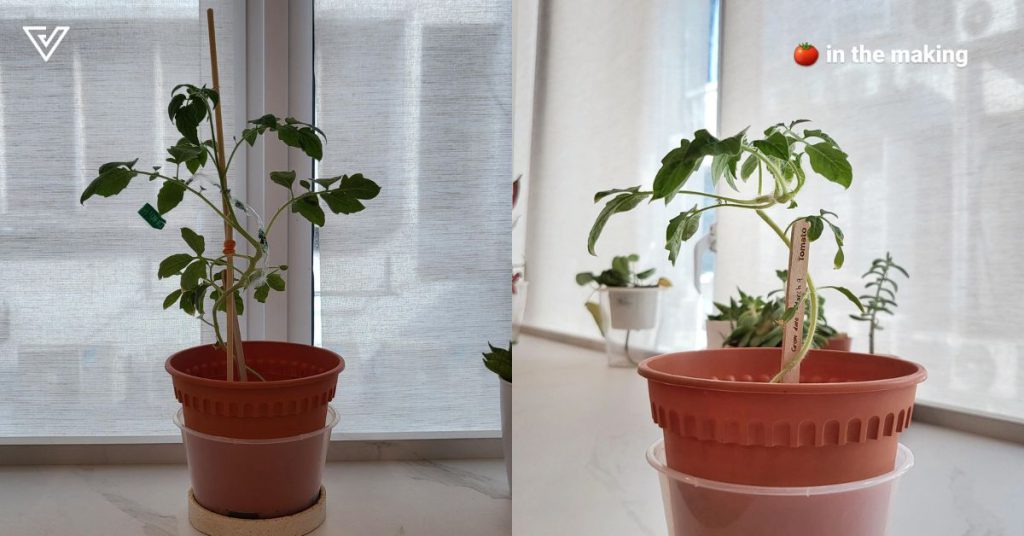
And the resilient little guy kept on living for months and months to come. It crept taller and taller every day, so much so that we ended up making a makeshift pole with chopsticks to let it wrap around.
Every so often, it would dramatically shrivel up to get our attention if we watered it one day late, but it never died. After watering it, the tomato plant would perk right up.
Soon enough, our tomato plant became a permanent fixture in our lives.
But it never flowered or bore fruit.
We came up with a variety of reasons. Maybe it was just the indoor environment we had placed it in. Maybe it needed to be in a bigger pot. Maybe it required some pollination action. Maybe it needed fertiliser.
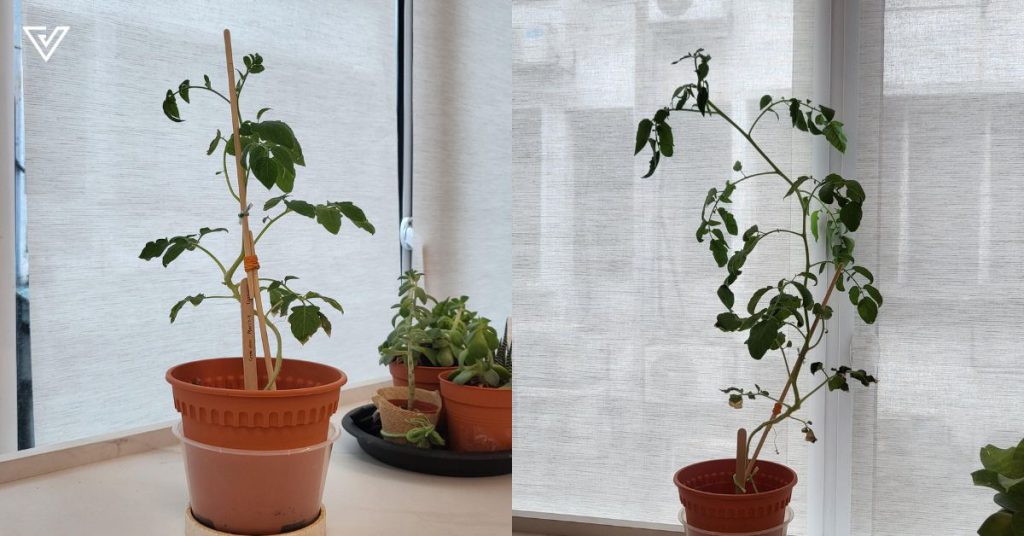
So, nearly three trimesters into the tomato plant’s life, my colleague Joyce decided to act on (one of) our hypotheses and got some fertiliser.
Sadly, not long after this experiment, the plant’s health began declining, and we had to say goodbye to our lovely tomato plant.
A fruitful experience?
Although I’m pretty sure we could’ve rushed the plant to the metaphorical ER and tried to save parts of the plant, or maybe repotted it, we simply lacked the skills and confidence to pull it off. And so, we decided it was time to put it out of its misery. (Plant parents, please don’t attack us.)
I wouldn’t say we had “black thumbs”, rather, we were just ignorant about the ways of planting.
You might think we “failed” our attempt, but I like to think that we had a really successful run that was just sadly marred by the test of time.
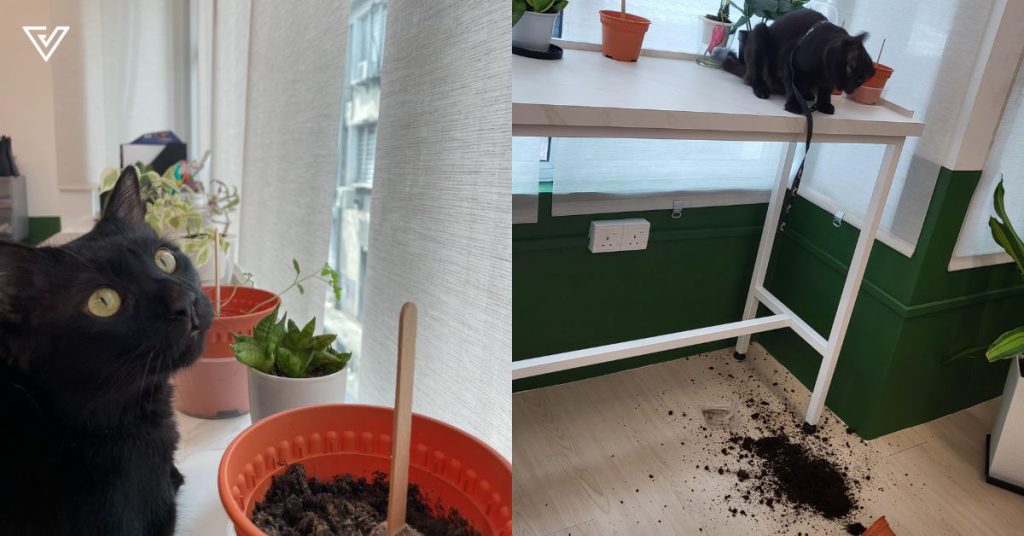
If you want to start your own vegetable garden, I’m not sure if these seed pops are the fastest way to get there, but they might just be one of the most fun ways.
I will say, we’ve also tried to grow another plant with some seeds we were given (not from Poptanical), and that was a dud (it never sprouted). So, I would say that the seed pops do have a high success rate of working.
I think Poptanical’s products make for great family projects, or for people who are newly getting into gardening. The business also does corporate orders, and I actually think they make for memorable gifts.
Just keep in mind that to give your plants the best shot, you should have access to direct sunlight, like an outdoor space for your plant such as on a balcony or in the garden. This is because windows actually diffuse a lot of the sun’s rays.
We also advise staying diligent about watering your plants and making sure the soil is moist. Once the plant looks like it’s growing bigger, it’s wise to think about repotting it into the soil or into a bigger pot.
Sure, there may be more straightforward ways to get into gardening, but the approach via the seed pop kits was a lot less intimidating for us.
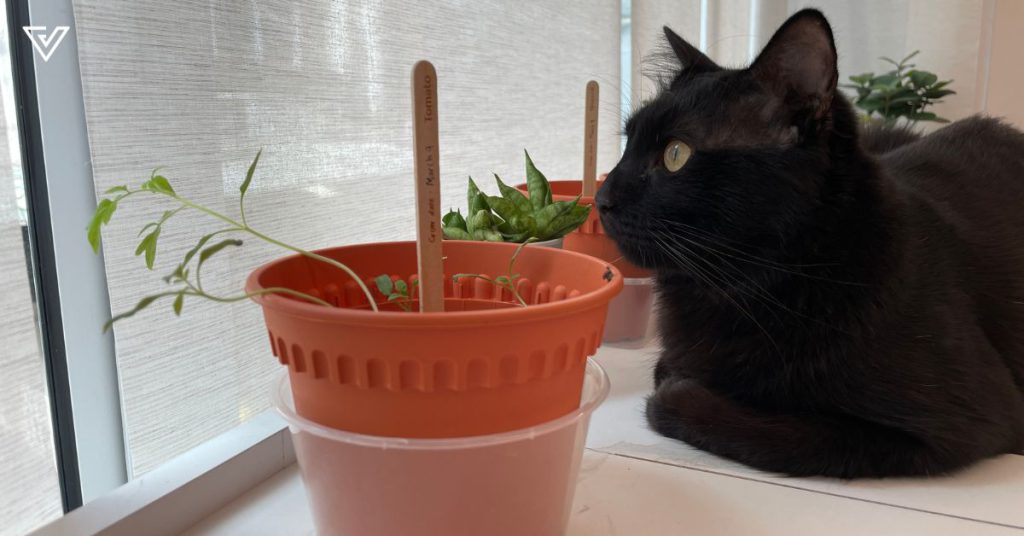
We’re sad that we never got to enjoy the fruits of our labour (literally), but Joyce and I conceded that we both really enjoyed the planting process. Throughout the course of our plants’ lives, we also shared many moments of glee by the windowsill, tracking the growth of the saplings, taking pictures like you would with a beloved pet (or child?).
So, maybe the real fruits were the friends and memories we made along the way. And you know what, I’m okay with that.
Learn more about Poptanical here.
Read other review articles we’ve written here.


![[Review] Poptanical, M’sian seed pop brand for edible gardens [Review] Poptanical, M’sian seed pop brand for edible gardens](https://thehollywoodpremiere.com/wp-content/uploads/2023/10/Review-Poptanical-Msian-seed-pop-brand-for-edible-gardens-750x375.jpg)

















![It was all going well until… | Squid Game 2 | Netflix [ENG SUB] It was all going well until… | Squid Game 2 | Netflix [ENG SUB]](https://thehollywoodpremiere.com/wp-content/uploads/2025/01/It-was-all-going-well-until-Squid-Game-2-120x86.jpg)









